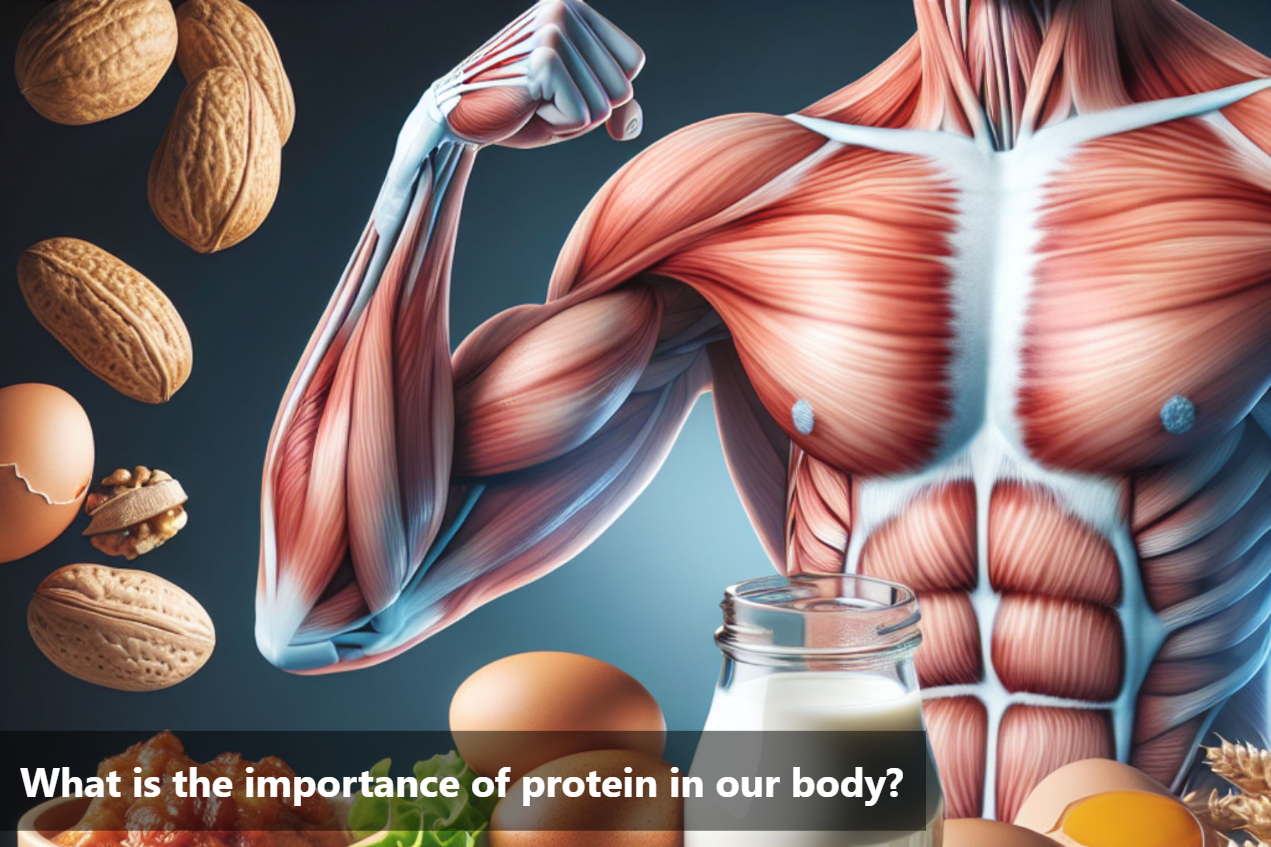
What is the importance of protein in our body?
Protein is a crucial macronutrient that plays a vital role in maintaining overall health and well-being. First and foremost, proteins are the building blocks of life, contributing to the growth and repair of tissues. From muscles to organs, protein is indispensable for maintaining the structural integrity of our body. Additionally, proteins play a significant role in the production of enzymes and hormones that regulate various physiological processes.
Moreover, protein acts as a source of energy, aiding in the proper functioning of our metabolism. It also supports the immune system, helping the body defend against infections and illnesses. Furthermore, consuming an adequate amount of protein can promote satiety and aid in weight management.
The importance of protein in the body cannot be overstated. By understanding the benefits of protein and incorporating it into our diet, we can enhance our overall health and lead a more balanced lifestyle.

Functions of Protein
Protein is an essential macronutrient that serves various crucial functions in the body.
One of the primary roles of protein is supporting muscle growth and repair. When we engage in physical activities like exercising, protein aids in the development and recovery of our muscles.
Furthermore, protein plays a vital role in hormone production. Hormones are chemical messengers that regulate numerous bodily functions, and proteins are key components in their creation. For instance, insulin, a hormone essential for regulating blood sugar levels, is made up of proteins.
Another significant function of protein is in enzyme function. Enzymes are biological molecules that catalyze biochemical reactions in the body, and many enzymes are composed of proteins. These enzymes facilitate various processes such as digestion, metabolism, and energy production.
The importance of protein in the body cannot be overstated. From supporting muscle growth and repair to aiding in hormone production and enzyme function, the benefits of adequate protein intake contribute significantly to overall health and well-being. Therefore, incorporating sufficient protein into your diet is crucial for maintaining a healthy and balanced lifestyle.
Sources of Protein
When looking at the sources of protein, we encounter a diverse array of options.
Animal-based proteins represent a substantial source, encompassing meat, poultry, fish, and dairy products. These provide essential amino acids crucial for muscle and tissue repair, aiding in growth and maintenance.
On the other hand, plant-based proteins, found in sources like legumes, nuts, seeds, and grains, offer an alternative that is often lower in saturated fats and cholesterol. They contribute to overall health by providing fiber, vitamins, and minerals in addition to protein.
Supplementation presents another avenue to meet protein requirements. Protein powders derived from whey, casein, soy, or pea can be convenient for those with higher protein needs or specific dietary restrictions. They offer ease of consumption and can be a handy option for athletes or individuals with busy lifestyles.
In expanding our knowledge on protein sources, we gain insight into the varied options available, each bringing its unique benefits to the table. By exploring and incorporating these diverse sources into our diet, we can ensure we meet our protein requirements effectively for optimal health and well-being.
Protein Requirements
Protein is essential for overall health and plays a crucial role in the body's functions. Meeting the daily intake of protein is vital for individuals of all age groups and lifestyles.
Protein requirements vary based on factors such as age, gender, physical activity level, and overall health status. For example, athletes and individuals engaged in regular exercise may need higher protein intake to support muscle growth and repair.
Children and adolescents in their growth phase require adequate protein to support development, while older adults may need to focus on maintaining muscle mass and strength.
The benefits of meeting daily protein requirements are numerous. Protein aids in muscle growth and repair, supports hormone production, boosts metabolism, and helps in enzyme function. This macronutrient also promotes satiety, making it beneficial for weight management.
To ensure optimal protein intake, incorporate a variety of protein sources into your diet such as lean meats, poultry, fish, dairy products, legumes, nuts, and seeds.
Consulting a healthcare professional or a nutritionist can help determine personalized protein needs based on individual requirements and health goals.
Remember, prioritizing protein intake is key to reaping the benefits it offers for overall health and well-being.

Protein: The Building Blocks of Life and Health
Protein is undeniably crucial for our overall health and well-being. It serves as the building blocks for our body, aiding in various essential functions, and ensuring we stay strong and healthy.
Meeting our daily protein requirements is vital as it helps in repairing and building muscles, regulating hormones, supporting enzyme function, and boosting our immune system. Without an adequate intake of protein, our bodies may struggle to perform these functions efficiently, impacting our health in the long run.
Incorporating sources of protein into our diets, whether from animal-based sources like lean meats, fish, or dairy, or plant-based sources like legumes, nuts, and seeds, is essential for maintaining optimal health. Additionally, for those with specific dietary needs or restrictions, protein supplementation can be a convenient way to meet their daily protein goals.
By prioritizing protein intake and ensuring we meet our recommended daily requirements based on our age, lifestyle, and activity levels, we can support our overall health, promote muscle repair and growth, and enhance our energy levels. A balanced diet that includes an adequate amount of protein is key to optimizing our health and well-being.
This Blog post is an initiative by Lo! Foods, to provide accurate and Nutritionist / Doctor approved information related to Health. Lo! Foods is India's leading brand for Everyday Functional Foods. Foods designed for specific Health conditions or Needs. Lo! Foods also runs India's largest range of Low Carb Healthy Cloud Kitchens, under the brand names of Lo!, ProteinChef, ATH (All Things Healthy) and DiabeSmart.













Leave a comment
Your email address will not be published.